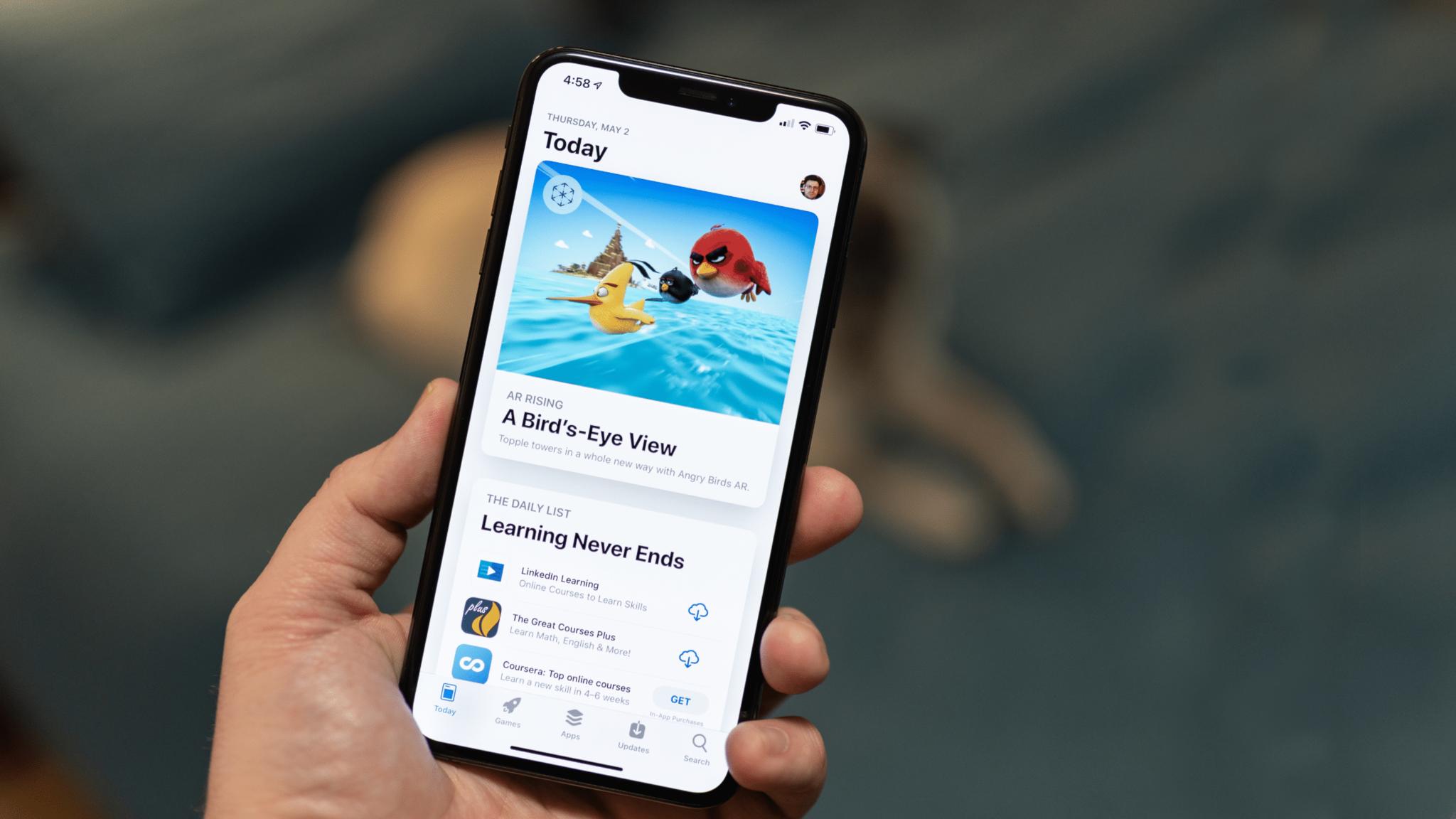Apple opens the floodgates in Europe: Alternative app stores, browser engines, and game options coming to European customers, to comply with the new Digital Markets Act (DMA)
iOS 17.4 to bring alternative app stores and payment methods

A new version of iOS is coming to European markets immediately – and it brings enormous changes to the familiar iPhone world. And if you like App stores, you're gonna love this.
Starting in iOS 17.4, EU users will be able to use the App Store or alternative app marketplaces, new distribution mechanisms for apps that anyone can build and deploy. Sure, you can install an alternative browser in the EU today, but they're required to use Apple's proprietary Webkit engine, and they’re hardly encouraged. In 17.4, Apple will let browsers such as Chrome use alternative engines. And you’ll be presented with a new “change your default” menu that lets you choose from a list of the most downloaded browsers. And you’ll get to learn a bit about them before making that choice. Whew!
It’s an enormous series of changes, prompted by the DMA ruling, and Apple worries deeply about the implications. The company notes how carefully it has curated the experience of the App Store over the years since it was first created to ensure that apps are safe, secure, and to some extent, moral. Apple has carefully policed the app store to prevent the proliferation of pornography, for example. And the company notes that viruses and widespread browser hacking are virtually nonexistent.
To ensure that continued level of safety, alternative browser engines will be required to meet certain Apple safety standards. But those app markets? They might just be the wild wild west: Apple noted that it will not be policing external app markets for explicit content or pornography as it does the App store.
On the one hand, you might soon get a Steam store on iOS. On the other hand, there might be a Pornhub store as well.
New systems, new fees, new "Fortnite tax"
Today, you manage the default browser in the Settings menu. Starting in iOS 17.4, EU users will be able to manage default browser in a new way. Open the browser and you’ll be instructed to select from a list of the most downloaded browsers. More than that, you’ll get to learn a bit about them before making that choice. You can choose your default payment app and app store in a similar fashion.
Meanwhile, developers will have a slew of new options as well, notably in how Apple charges commissions -- again, part of changes mandated by the DMA. At present, 88% of EU app developers pay no commission fees to Apple, the company says. But moving forward, Apple will charge different fees: Developers will have the choice to use new payment processors or to remain under the App store on current terms.
iMore offers spot-on advice and guidance from our team of experts, with decades of Apple device experience to lean on. Learn more with iMore!
For most of them, this might mean cheaper rates: Apple says that for developers who want to continue to use the App Store, fees drop from 30% to 17%, and discounted program fees (for small businesses, mostly) go from 15% to 10%. For developers who distribute outside of the App Store, Apple will collect no fees at all.
But it ain't all wine and roses.
There's a new Core Tech fee coming out, to cover usage of Apple's proprietary tech and tools, developer services and support, and the integrity of the iOS platform. It'll only apply to developers who achieve "extraordinary scale," either through the App Store or through alternative distribution.
What's it mean, exactly? The first million downloads are free, Apple says. Developers who blow past that rate -- we're looking at you, Fortnite -- will be required to pay 50 Euro cents per download, fees that will be spread out over the course of a year. Fewer than 1% of active EU developers will pay this fee, the company believes, and it will be waved entirely for education, government, and nonprofits.
The beta release of iOS 17.4 comes out today, Apple said. Changes will become available in March 2024, to comply with the DMA act's requirements.
After 25 years covering the technology industry, Jeremy Kaplan is a familiar face in the media world. He is currently the Content Director for iMore, where he oversees product development and quality for one of the world's largest and most respected technology publishers.
Before joining the iMore, Jeremy was Editor in Chief of Digital Trends, where transformed the niche publisher into one of the fastest-growing properties in digital media, ranking on the annual Inc 5,000 for three years running. The publisher won multiple awards during his tenure, including a sought-after Digiday Content Marketing Award in 2019. The same year, Jeremy was named to the FOLIO: 100, which honors publishing professionals making an industry-wide impact.
Prior, he served five years as the science and technology editor for FoxNews.com, where he made international news through a series of articles exposing Hector Xavier Monsegur as the head of LulzSec, revealing a months-long collaboration with the FBI, and detailing the ultimate takedown by law enforcement officials of the hacker collective. Kaplan worked for over a decade at Ziff Davis Media, publisher of PCMag.com and Extreme Tech. While there, he helped found the GoodCleanTech blog, which was a 2008 finalist in the MIN Best of the Web Awards and the Jesse H. Neal National Business Journalism Awards Competition and ultimately served as Executive Editor.
He's a sought-after tech pundit and futurist who’s worked with organizations like the Consumer Tech Association to identify and highlight the world’s most innovative technology. Kaplan appears regularly on television and radio, including frequent appearances on Fox Business, Reuters, Cheddar, and NPR.
